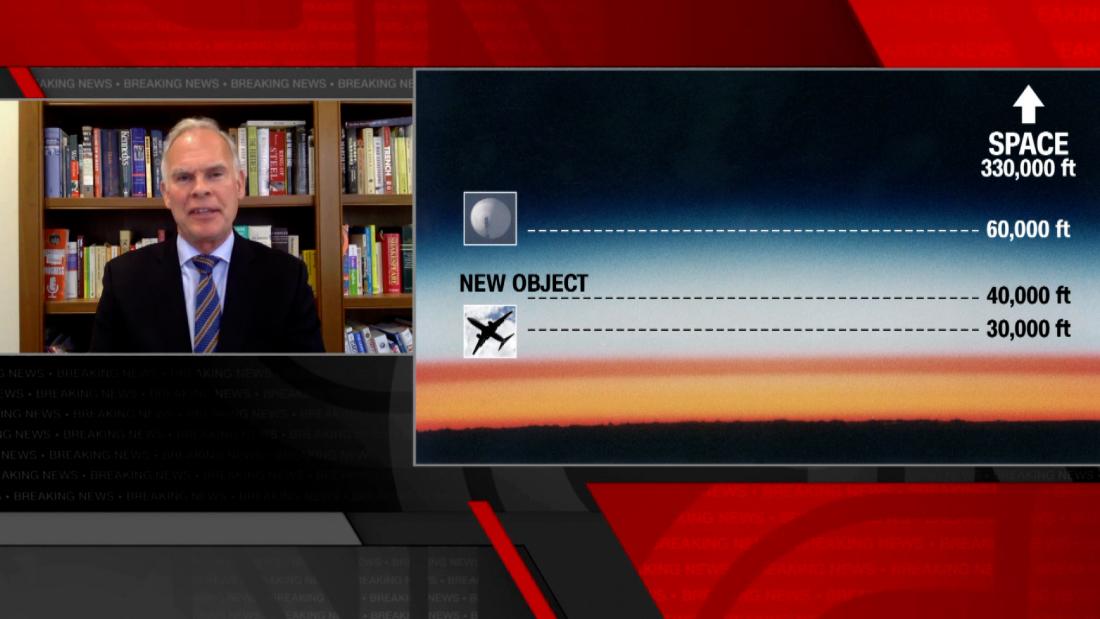More results coming in for tight Senate races
35 min agoSenate control could hinge on two states with prominent election deniers From CNN's Maeve RestonNevada Republican Senate nominee Adam Laxalt, left, and Arizona Republican Senate nominee Blake Masters. (Getty Images)Control of the US Senate could hinge on Nevada and Arizona, two states where GOP victories could elevate some of the most prominent election deniers in the country even after other nominees who had amplified former President Donald Trump’s falsehoods about the 2020 election were rejected by voters in Tuesday’s midterm elections.Those two western states – perpetual battlegrounds in presidential years – were still too early to call as of early Thursday morning, while a third Democratic-held seat, Georgia, will advance to a December runoff, CNN projects. Republicans need to pick off two Democratic seats to win the majority. As ballots continue to be counted across the country, Republicans appear to be slowly inching toward the 218 seats that would deliver them a House majority, albeit one that’s much narrower than they’d hoped.The struggle for the Senate, however, is still full of unknowns – including whether it will all come down once again to Georgia after the Peach State delivered Democrats the majority in 2021 with victories in twin runoffs. It’s Nevada and Arizona that will determine how pivotal Georgia becomes.Arizona Democratic Sen. Mark Kelly was maintaining an edge over Republican Blake Masters as of early Thursday morning, while Nevada Democratic Sen. Catherine Cortez Masto was trailing Republican Adam Laxalt. CNN had estimated late Wednesday that about 600,000 votes remained to be counted across the Grand Canyon State and about 160,000 votes remained to be counted in Nevada.Nevada: Laxalt, the state's former attorney general, was a co-chairman of Trump’s 2020 presidential campaign in the state and filed lawsuits attempting to overturn Nevada’s results in that election, which he said was “rigged.” Cortez Masto had argued that the lies and election conspiracy theories embraced by Trump and allies like Laxalt led to the attack on the US Capitol on January 6, 2021.Arizona: Masters, a venture capitalist and first-time candidate, released a campaign video as he was competing for the GOP nomination in which he said he believed Trump had won the 2020 election. Masters, like Laxalt, clinched Trump’s endorsement.After winning the Arizona Senate primary, Masters briefly appeared to back away from some of that extreme rhetoric – scrubbing his website, for example, of language that included the false claim that the election was stolen. In a debate with Kelly, he also conceded that he had not seen evidence of fraud that would have changed the outcome of the election. But the Republican nominee seemed to reverse course after receiving a phone call from Trump urging him to “go stronger” on election denialism, a conversation that was captured in a Fox documentary.You can read more about election deniers up and down the tickets here.1 hr 47 min agoAnalysis: A midterm stalemate will unleash turmoil and acrimony in run up to 2024From CNN's Stephen CollinsonUS democracy, which almost buckled two years ago, just delivered a perfect reflection of a polarized nation that mistrusts its leaders and isn’t ready to unite on a new path.Tuesday’s midterm elections gave Americans two more years to collectively decide what they really want by likely ushering in a divided government that is certain to be acrimonious but will prevent Democrats or Republicans from engineering a major ideological shift. It also scrambled the terrain of the early 2024 presidential race, with President Joe Biden and ex-President Donald Trump both moving toward new campaigns that much of the country appears not to want.A divided government would mean two years of dysfunction, bitterness, fiscal cliffs and debt showdowns between a Republican House and the Democratic White House. Token talk of bipartisan cooperation won’t last long. Even if Democrats somehow manage to cling to the House as final results trickle in, they’d also lack the leeway to pass nation-changing laws. And whoever wins the Senate majority, the chamber will effectively be split down the middle and locked in an angry stalemate. Like America itself.What this means for 2024: The election results pose new questions heading into the next White House campaign over the prospects of both Trump and Biden. Trump’s obsession with promoting chaos candidates in his image may yet again doom Senate Minority Leader Mitch McConnell’s chances of returning as majority leader. Trump, of course, is already blaming everyone but himself as he eyes a campaign launch next week that will lack the springboard of a Republican landslide he would have claimed was all his doing. And the roaring reelection of Florida Gov. Ron DeSantis presented Trump with a huge potential 2024 GOP primary headache.Biden, meanwhile, seemed unusually upbeat for a president who may soon face a tsunami of subpoenas, in
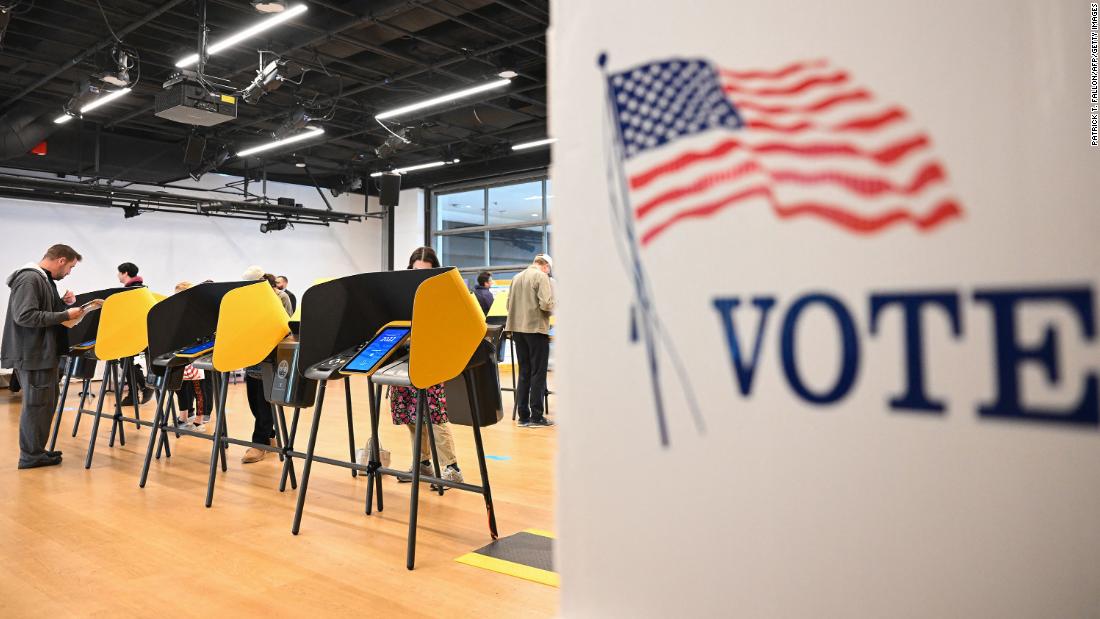
Senate control could hinge on two states with prominent election deniers
From CNN's Maeve Reston
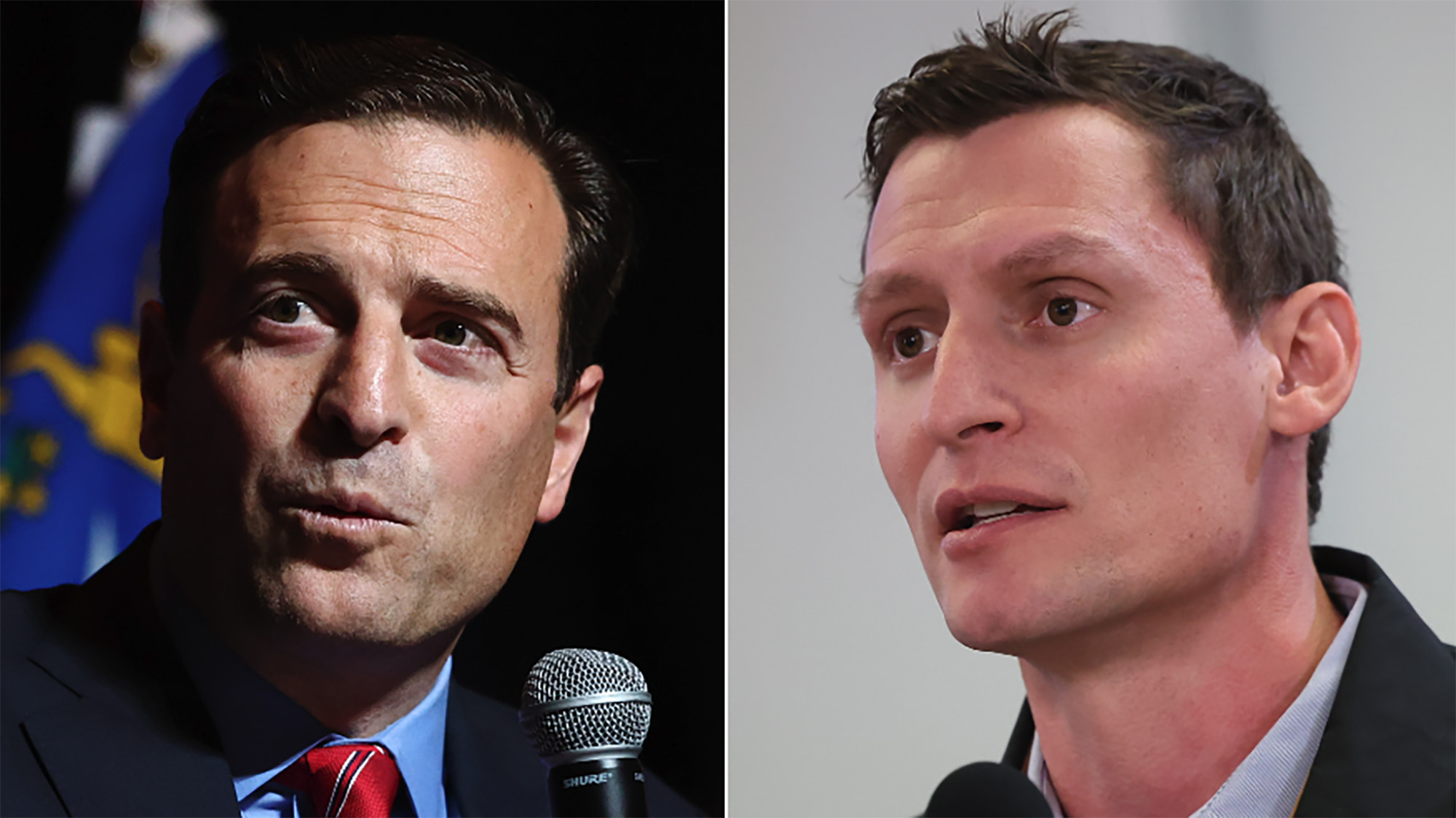
Control of the US Senate could hinge on Nevada and Arizona, two states where GOP victories could elevate some of the most prominent election deniers in the country even after other nominees who had amplified former President Donald Trump’s falsehoods about the 2020 election were rejected by voters in Tuesday’s midterm elections.
Those two western states – perpetual battlegrounds in presidential years – were still too early to call as of early Thursday morning, while a third Democratic-held seat, Georgia, will advance to a December runoff, CNN projects. Republicans need to pick off two Democratic seats to win the majority. As ballots continue to be counted across the country, Republicans appear to be slowly inching toward the 218 seats that would deliver them a House majority, albeit one that’s much narrower than they’d hoped.
The struggle for the Senate, however, is still full of unknowns – including whether it will all come down once again to Georgia after the Peach State delivered Democrats the majority in 2021 with victories in twin runoffs. It’s Nevada and Arizona that will determine how pivotal Georgia becomes.
Arizona Democratic Sen. Mark Kelly was maintaining an edge over Republican Blake Masters as of early Thursday morning, while Nevada Democratic Sen. Catherine Cortez Masto was trailing Republican Adam Laxalt. CNN had estimated late Wednesday that about 600,000 votes remained to be counted across the Grand Canyon State and about 160,000 votes remained to be counted in Nevada.
Nevada: Laxalt, the state's former attorney general, was a co-chairman of Trump’s 2020 presidential campaign in the state and filed lawsuits attempting to overturn Nevada’s results in that election, which he said was “rigged.” Cortez Masto had argued that the lies and election conspiracy theories embraced by Trump and allies like Laxalt led to the attack on the US Capitol on January 6, 2021.
Arizona: Masters, a venture capitalist and first-time candidate, released a campaign video as he was competing for the GOP nomination in which he said he believed Trump had won the 2020 election. Masters, like Laxalt, clinched Trump’s endorsement.
After winning the Arizona Senate primary, Masters briefly appeared to back away from some of that extreme rhetoric – scrubbing his website, for example, of language that included the false claim that the election was stolen. In a debate with Kelly, he also conceded that he had not seen evidence of fraud that would have changed the outcome of the election. But the Republican nominee seemed to reverse course after receiving a phone call from Trump urging him to “go stronger” on election denialism, a conversation that was captured in a Fox documentary.
You can read more about election deniers up and down the tickets here.
Analysis: A midterm stalemate will unleash turmoil and acrimony in run up to 2024
From CNN's Stephen Collinson
US democracy, which almost buckled two years ago, just delivered a perfect reflection of a polarized nation that mistrusts its leaders and isn’t ready to unite on a new path.
Tuesday’s midterm elections gave Americans two more years to collectively decide what they really want by likely ushering in a divided government that is certain to be acrimonious but will prevent Democrats or Republicans from engineering a major ideological shift. It also scrambled the terrain of the early 2024 presidential race, with President Joe Biden and ex-President Donald Trump both moving toward new campaigns that much of the country appears not to want.
A divided government would mean two years of dysfunction, bitterness, fiscal cliffs and debt showdowns between a Republican House and the Democratic White House. Token talk of bipartisan cooperation won’t last long. Even if Democrats somehow manage to cling to the House as final results trickle in, they’d also lack the leeway to pass nation-changing laws. And whoever wins the Senate majority, the chamber will effectively be split down the middle and locked in an angry stalemate. Like America itself.
What this means for 2024: The election results pose new questions heading into the next White House campaign over the prospects of both Trump and Biden. Trump’s obsession with promoting chaos candidates in his image may yet again doom Senate Minority Leader Mitch McConnell’s chances of returning as majority leader. Trump, of course, is already blaming everyone but himself as he eyes a campaign launch next week that will lack the springboard of a Republican landslide he would have claimed was all his doing. And the roaring reelection of Florida Gov. Ron DeSantis presented Trump with a huge potential 2024 GOP primary headache.
Biden, meanwhile, seemed unusually upbeat for a president who may soon face a tsunami of subpoenas, investigations and even possible impeachment from a GOP House. He enjoyed calling out the conventional wisdom during a White House news conference on Wednesday afternoon. “While the press and the pundits were predicting a giant red wave, it didn’t happen,” he said.
When Biden meets world leaders in the coming days in Egypt and Bali, Indonesia, he can crow about escaping the epic first-term shellacking suffered by most presidents. He also put off an immediate inquest about his suitability to carry the Democratic banner into 2024, ahead of a vacation he said he’d like to take between Thanksgiving and Christmas with First Lady Jill Biden to consider his future.
Yet a loss is a loss. And CNN exit polls show only 30% of House race voters want a president with a low-40s approval rating, who will be 80 in a few weeks, to run for reelection in a campaign that could well coincide with the recession many economists fear. Biden would prefer another finding from those same polls, however, that showed Trump – with a 39% approval rating – is even less popular.
Read the full analysis here.
Here's where things stand with the balance of power in the Senate and the House
From CNN's Ethan Cohen
With the day after the election wrapping up, control of Congress remains undetermined.
Republicans hold 49 seats in the Senate, while the Democrats have 48. Two states are uncalled and Georgia's Senate seat will be decided by a December runoff election.
In the House, it could be days until a full picture emerges as votes are still being counted in states like California, Oregon, Nevada and Arizona.
Senate
It's still too early to call which party will gain control of the Senate.
Democrats have had the only pickup so far with John Fetterman’s win in Pennsylvania, but they still need to win two more seats to guarantee control.
On Wednesday, CNN projected that GOP Sen. Ron Johnson would hold his seat in Wisconsin and that Democratic Sen. Raphael Warnock and Republican Herschel Walker will be headed to a Dec. 6 runoff in Georgia.
CNN hasn’t made a projection of party control in two other seats – Arizona and Nevada.
As of 11:30 p.m. ET, Democratic Sen. Mark Kelly of Arizona was ahead of Republican Blake Masters by about 95,000 votes after a vote report from Maricopa County expanded Kelly’s lead. CNN estimates that as of 11:30 p.m. Wednesday, about 600,000 votes remain to be counted in Arizona.
In Nevada, Republican Adam Laxalt currently leads the count against Democratic Sen. Catherine Cortez Masto. CNN estimates that as of 11:30 p.m. Wednesday, about 160,000 votes remain to be counted in Nevada.
Nightly vote reports from the largest counties are expected in both states.
While CNN has projected that Alaska’s Senate seat will be controlled by Republicans, CNN has not projected whether Sen. Lisa Murkowski or Kelly Tshibaka will prevail. If neither gets over 50% of first-choice votes, the contest will be decided by ranked-choice voting.
Click here for the most up-to-date numbers.
House
There are currently 35 uncalled House races – Democrats lead in the vote count in 24 of them as of 11:30 p.m. while Republicans lead in 11.
Republicans need to win 9 more seats to reach the 218 needed to control the House, Democrats need to win 27 more seats to reach 218.
Click here for the most up-to-date numbers.
Female governors will break a record in 2023
From CNN's Simone Pathe

The US will have a record number of female governors in 2023. Still, the record-setting number – 12 – will represent a small fraction of the top executives across the 50 states.
The previous record of nine female governors serving concurrently was set in 2004, according to the Center for American Women and Politics at Rutgers University.
Incumbent female governors in Maine, Alabama, Michigan, Iowa, South Dakota, Kansas and New Mexico won reelection on Tuesday, while New York Gov. Kathy Hochul won a first full term after taking over the top job in 2021 following the resignation of Andrew Cuomo. Hochul will become the first elected female governor in the state.
Two states – Massachusetts and Arkansas – elected new female governors. Democrat Maura Healey will become the first woman elected to the governorship of Massachusetts and the first out lesbian governor in the US. Republican Sarah Huckabee Sanders, a former White House press secretary in the Trump administration, will become the state’s first female governor, winning the job that her father once held.
Arkansas and Massachusetts will also become the first states to have women serving in the governor and lieutenant governor positions at the same time, according to CAWP.
To read more, click here:
Voters deliver ringing endorsement of abortion rights via midterm ballot initiatives
From CNN's Veronica Stracqualursi, Devan Cole and Paul LeBlanc

Voters in key states on Tuesday made their support for abortion rights clear, affirming a months-long push by Democrats to act on a number of ballot measures in the wake of the Supreme Court’s decision overturning Roe v. Wade.
Several states moved to enshrine abortion protections in their constitutions and others rejected proposals to limit abortion access or criminalize doctors in some cases. Democratic lawmakers and organizers cast the midterm elections as a referendum on Republican efforts to limit women’s choices, and the notable electoral reaction could serve as a warning sign for future GOP efforts to restrict the procedure at the state level.
About 27% of voters cited abortion as the issue most important to them, according to the preliminary results of the national and state exit polls conducted for CNN and other news networks by Edison Research. The results also showed that when it comes to the issue, roughly half of voters said they trusted Democratic candidates, compared with more than four in 10 voters who said they trusted Republican candidates.
“This fall, Roe is on the ballot,” President Joe Biden declared in a defiant speech from the White House just hours after the Supreme Court’s ruling earlier this year.
While CNN projected some anti-abortion Republicans will win their races, voters in five states moved to affirm abortion rights.
Click here for a running list of what voters decided on Election Day
CNN Projection: Democratic Reps. Paul Ruiz and Marilyn Strickland to win in their respective districts
From CNN's Brian Rokus
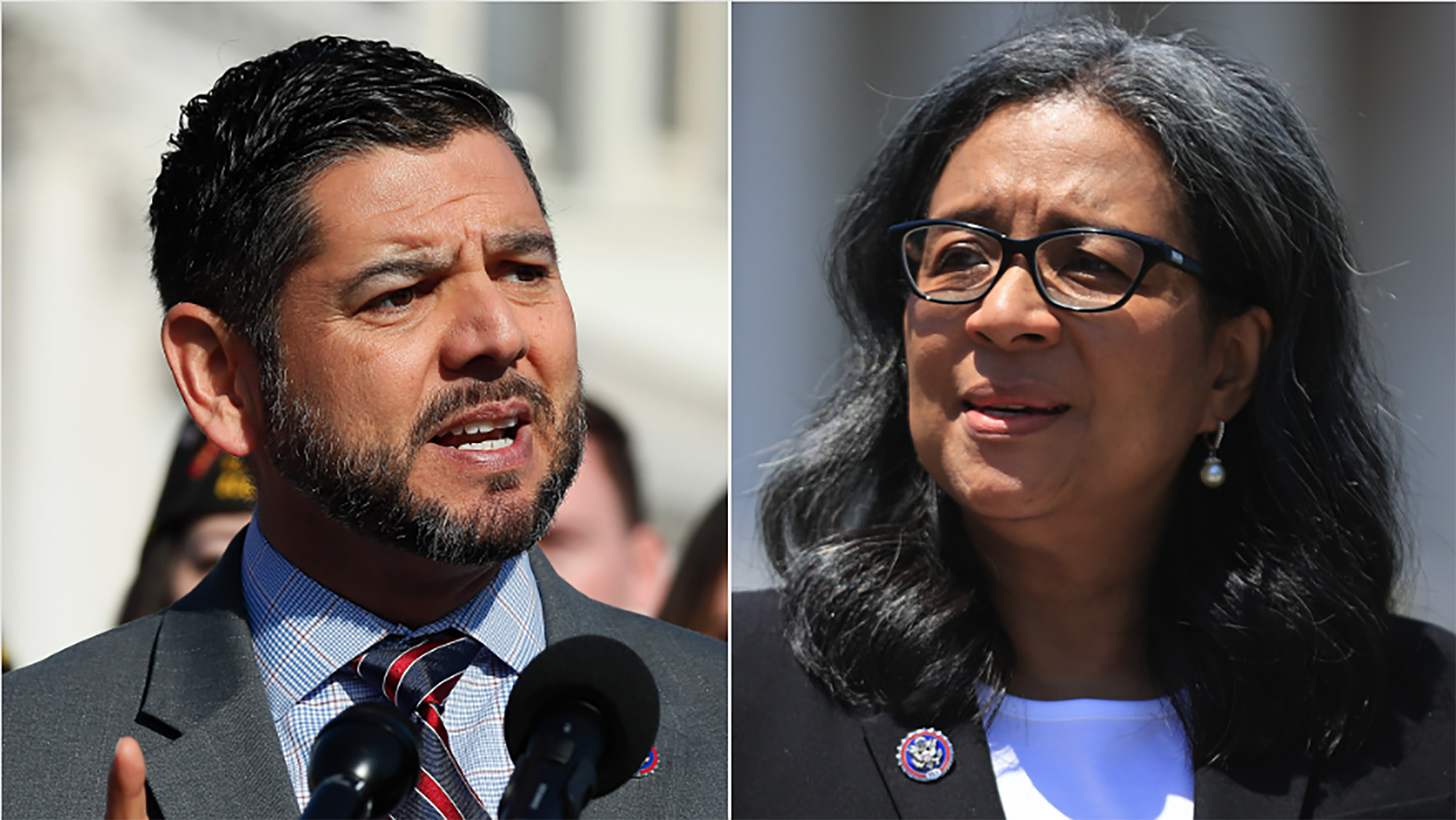
Democratic Rep. Paul Ruiz will defeat Republican Brian Hawkins in California's 25th District and Democratic Rep. Marilyn Strickland will defeat Republican Keith Swank in Washington's 10th District, CNN projects.
Democrats now have 191 of the 218 seats required to control the House, according to CNN's projections.
A wave of new ads coming soon to Georgia, with Republicans planning to use Biden's words today against Warnock
From CNN's Jeff Zeleny
Georgia is getting ready for its second Senate showdown in as many years, with new TV ads poised to begin soon in the Dec. 6 runoff contest between Democratic Sen. Raphael Warnock and Republican challenger Herschel Walker.
While Democrats intend to keep pressing forward with attempts to show Walker as unprepared and unfit to serve in the Senate, Republicans are intent on nationalizing the race.
On Wednesday night, a Republican strategist said to look for President Biden to be featured prominently in the television advertising campaign. Biden's comment at the White House that he planned to do “nothing” different during his next two years in the White House will be tested and likely turned into a commercial as Republicans try to ramp up their argument that Walker – and Georgia voters – have the unique power to offer a check on Biden’s policies and the White House.
Two pillars of their respective parties who will be called upon to lend a hand in the runoff: Republican Gov. Brian Kemp, who has offered to help loan his campaign apparatus to Walker, and Stacey Abrams, who fell short in her governor’s race, but who has an army of campaign workers and volunteers.
Georgia, which had been the second-most expensive Senate race, is now poised to become the most expensive – and to many voters here, the most exhausting.
Arizona officials vow to look into cause of tabulation issue that sparked unfounded claims of fraud in key county
From CNN's Elizabeth Hartfield
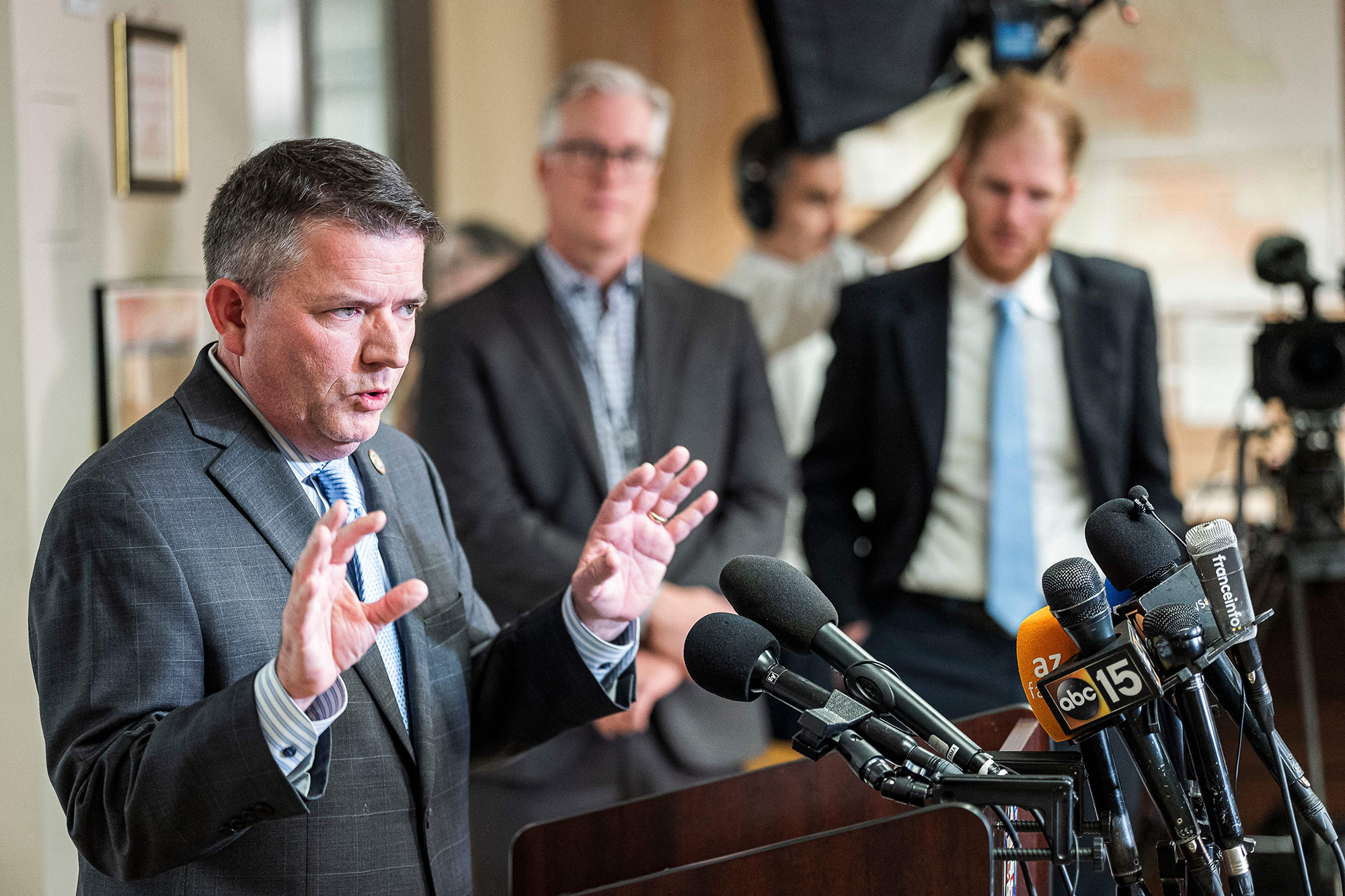
Maricopa County Board of Supervisors Chair Bill Gates and Vice Chairman Clint Hickman vowed to "get to the bottom" of a printer issue that resulted in some ballots not being read at voting centers on Election Day.
The issue, which became a focal point for right-wing personalities and has fueled false allegations of fraud, impacted less than 7% of Election Day voters or about 17,000 ballots, according to the statement. And those impacted voters had additional ways to cast their ballots on Tuesday.
A judge in Maricopa County who was asked to adjudicate on the issue Tuesday evening said there was no evidence that anyone who wanted to vote was not able to.
"Once we get through this election, we are committed to finding the root cause of the issue so that it does not happen again," Gates and Hickman wrote.
Some context: Maricopa, Arizona’s most populous county, was the center of the election conspiracy theory universe after then-President Donald Trump lost the state in 2020. Republicans called for votes to be audited and audited again, even eventually bringing in the infamous “Cyber Ninjas” who ultimately concluded Joe Biden had won there.
CNN's Donie O'Sullivan contributed to this report.
CNN Projection: Republican Jay Obernolte will win California's 23rd Congressional District
From CNN's Brian Rokus
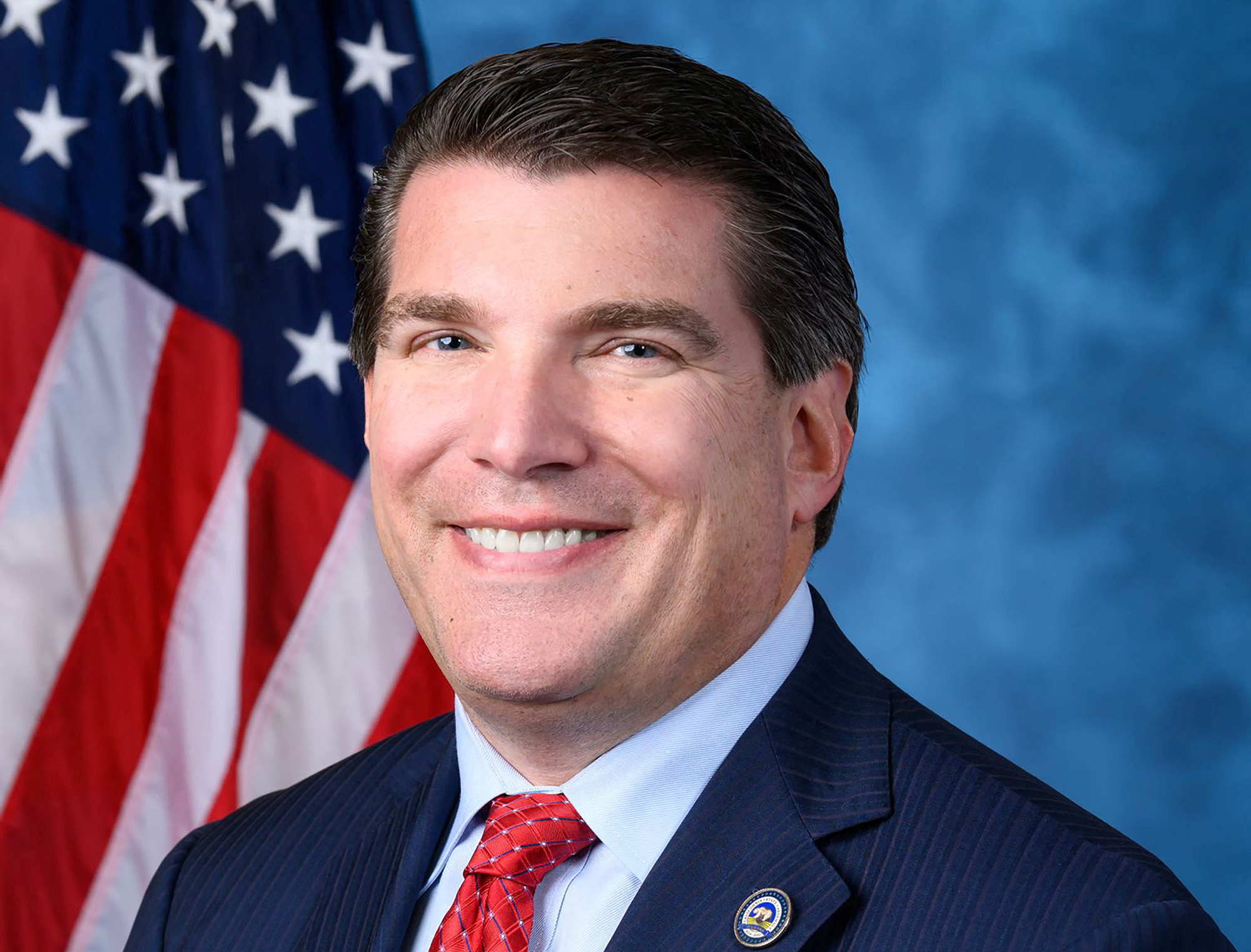
Republican Rep. Jay Obernolte will defeat Democrat Derek Marshall in California's 23rd Congressional District, CNN projects.
Republicans now have 209 of 218 seats needed to control the House, according to CNN's projections.

 Landwebs
Landwebs 





















